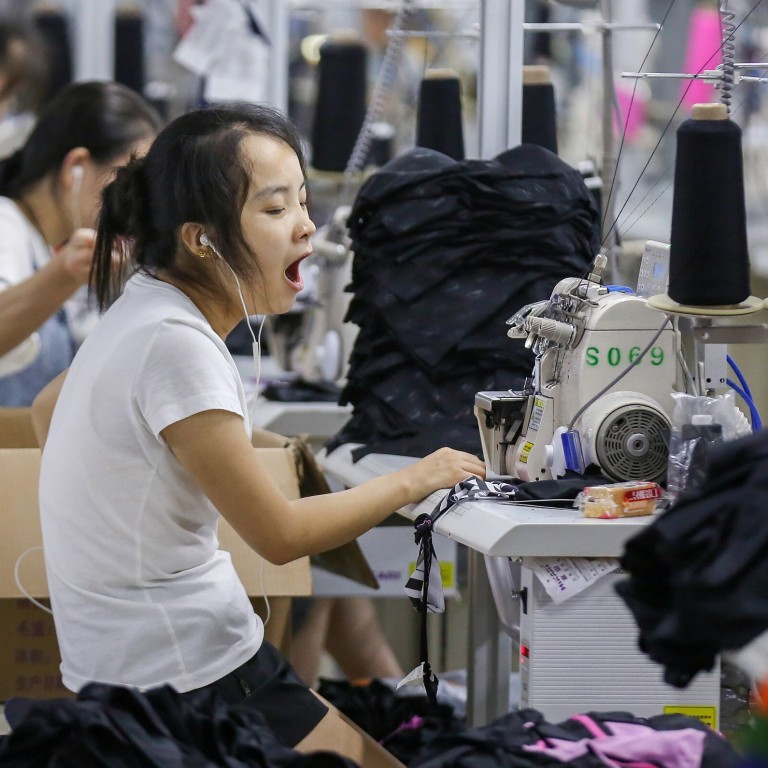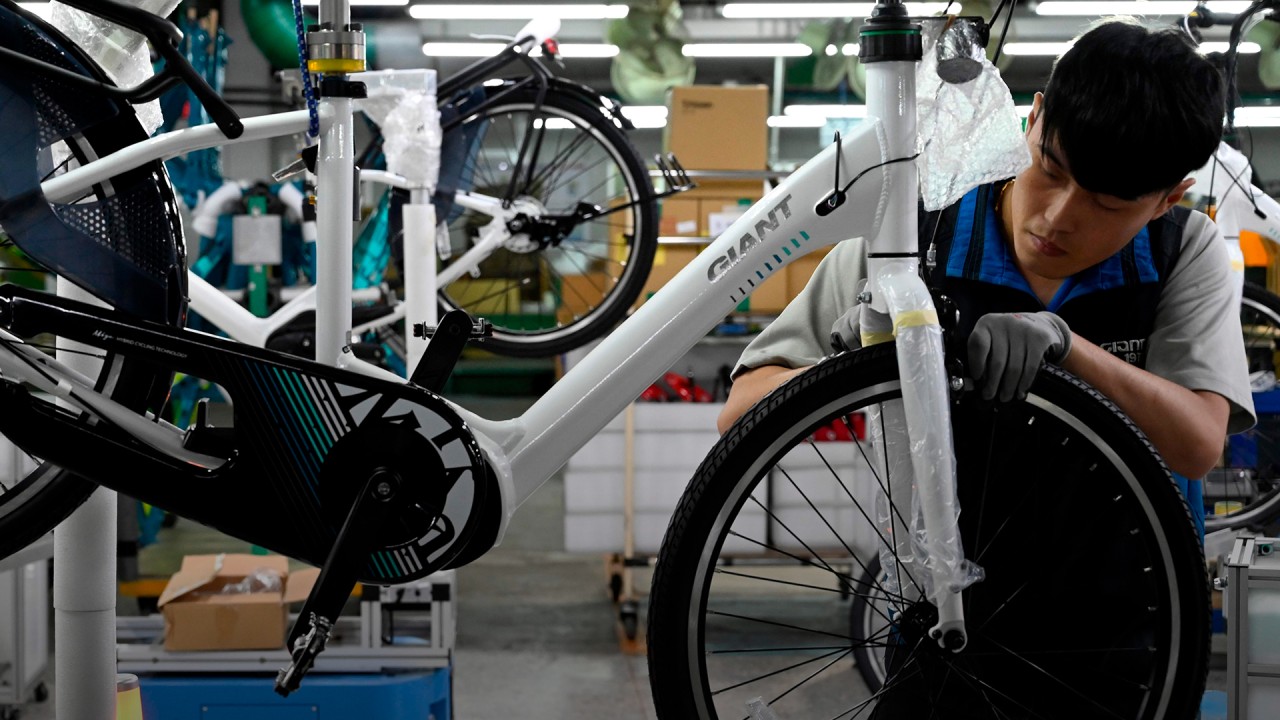
Hong Kong manufacturers struggle with ‘blackouts’, rising producer prices in mainland China
- Factory orders have returned to about 70 to 80 per cent of pre-pandemic levels, the Chinese Manufacturers’ Association of Hong Kong says
- But Hong Kong firms on the mainland have been beset by high commodity prices, electricity cuts and hiring difficulties
As China pushes to maintain its central position in the global supply chain, Hong Kong funded-firms are being hit by new challenges on the mainland, including power shortages and skyrocketing production costs, according to an industry group.
China’s domestic demand and exports continue to recover from the coronavirus pandemic, with factory orders at about 70 to 80 per cent of pre-pandemic levels, Allen Shi Lop-tak, president of the Chinese Manufacturers’ Association of Hong Kong, said on Wednesday.
“Orders have not been bad, they are being taken as far out into next year. But the new difficulty for those of us with factories on the mainland is the power shortage problem,” said Shi. “There have been blackouts in several regions that have lasted about a day or two. This is very worrying as business improves.”
State-owned electricity grid operator, China Southern Power Grid, said on Wednesday peak-capacity demand had been at record levels over the past three weeks due to a combination of high temperatures and brisk economic activity.

04:04
Hong Kong company aims to mass produce human-like robots for health care uses
This has caused power rationing for two days a week in some areas, forcing owners to keep factories running at weekends or resort to diesel generators to maintain production.
Shi said hiring difficulties posed another problem, along with skyrocketing raw material prices brought on by global inventories that are running low because production and supply continue to be disrupted by the pandemic.
“This is causing quite a big impact to factories,” he said. “We have no choice but to wait until the shipping industry [recovers].”
Commodity prices in the world’s second biggest economy have seen big swings this year driven by strong post-pandemic demand, global liquidity easing and speculative trading.
Slow vaccination progress among major commodity producers, many of whom are developing countries, has diverted demand to China and contributed to a spike in factory gate prices and slower industrial output.
China’s producer price index, a gauge of industrial profitability, rose 6.8 per cent in April from a year earlier, the fastest rate in three and a half years in April.
Meanwhile, futures prices for commodities such as iron ore, corn, steel and copper have hit historic highs on Chinese exchanges this year.
The National Development and Reform Commission, China’s top economic planning agency, also announced last week new measures to improve pricing and flexibility in the energy market.

01:39
Coronavirus pandemic leads to boom in demand for Taiwan bicycle manufacturer
However, policymakers are reluctant to take real action, said Macquarie Capital Greater China economist Larry Hu, adding policy tightening has been much milder than in 2018.
Authorities are focused on the micro level, such as addressing commodity prices, credit risks, cryptocurrency, the property market and implementing curbs on big tech, Hu said.
Chen Xingdong, chief China economist at BNP Paribas, said that China’s domestic production restrictions will add to price increases.
President Xi Jinping announced late last year China would peak carbon emissions by 2030 and reach carbon neutrality by 2060.
To achieve the carbon reduction targets, the central government has imposed limits on the production of coal, steel and aluminium, similar to its “cutting overcapacity campaign” in 2016-18, Chen said.

